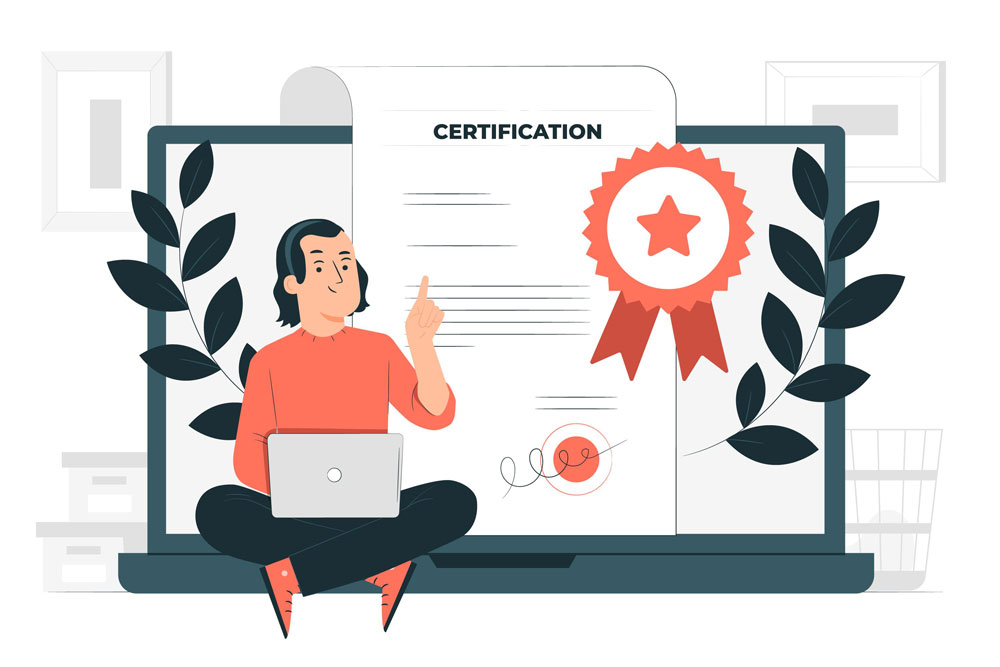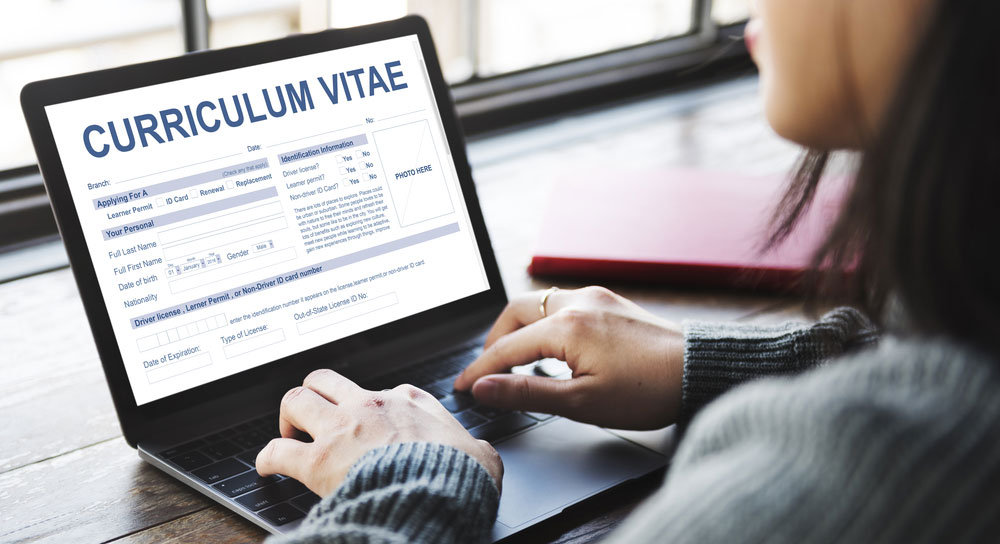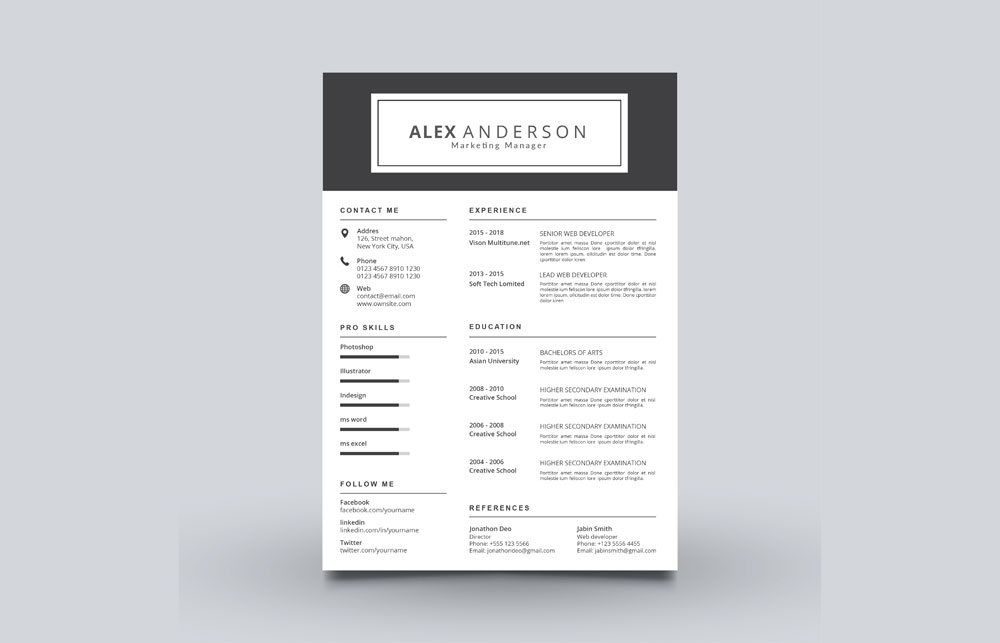Group Discussion: GD Types, Do’s & Dont’s Trending Topics
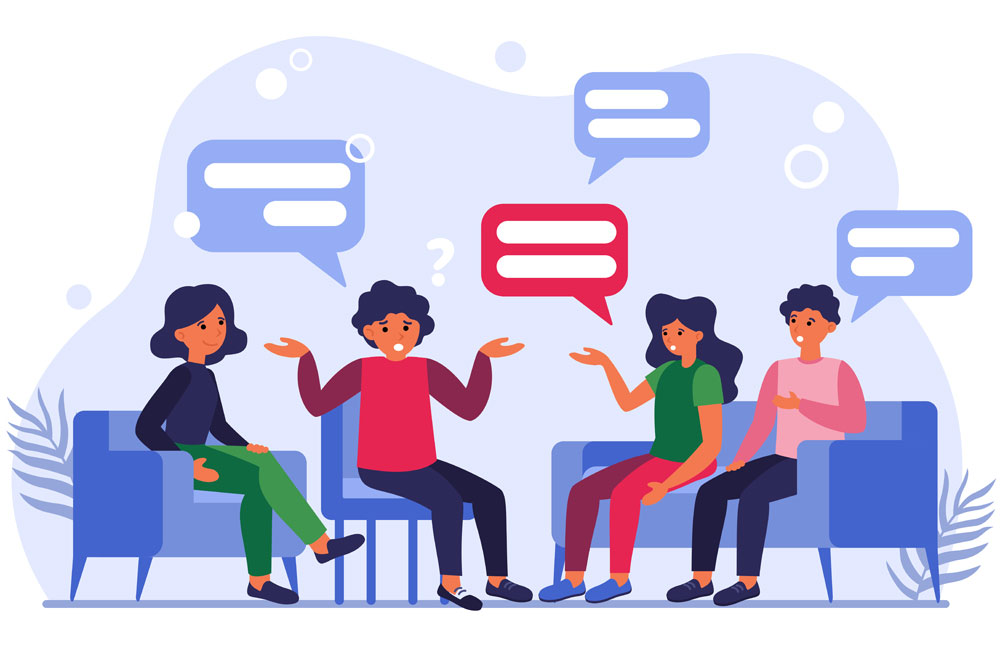
Group discussion, or GD, is an integral part of a selection process, be it a job interview or entrance exam. This article will share everything you need to know about Group discussion, along with some tips to help you ace your next group discussion.
What Is Group Discussion?
A group discussion is a conversation between a group of participants on a given subject. A group discussion typically forms a part of the selection process used by organisations and educational institutions. The candidates talk about the given topic to present facts, opinions and conclusions. Employers use this technique to screen candidates and assess their soft skills.
In a typical group discussion activity, the panellists or moderators will introduce themselves and give you instructions about the process. The group will then get about 10-15 minutes to think and prepare about the subject and approximately 30 minutes to discuss it. The time limits can vary from process to process. Panellists use an evaluation sheet for rating the performance of the candidates based on a predetermined marking rubric.
Why is GD Conducted?
Group discussions are conducted for the panellists to test the candidates’ interactive skills and how they can lead and conclude the discussion. The skills assessed by the panellists include leadership, communication, interpersonal and persuasive skills.
GD comes to the rescue when you want to see the best candidate among a group of people. It helps panellists find the most suitable candidate for whichever position or role they are trying to fill. It helps them pick out who has the confidence and drive to rise above the occasion, and there is no place more daunting than having to speak out in front of many people for freshers.
Finding a job? Apply here
Group Skills
Listening Skills
When more people are involved in a group discussion, it is easier to miss out on some points. Therefore, listen to what others say and present your opinion. The panel will keep their eyes on you to see when you change your facial expressions or be lost in your thoughts; at that time, they can ask you questions. Therefore, maintain eye contact, listen to what everyone is saying, and participate in the group discussion with your point of view.
Body Language
It is an important element that you need to look upon because body language represents more than what you think. It is very common to feel nervous before a discussion. However, you should walk in the room confidently, maintain eye contact, speak clearly, and sit straight in the room. It can be difficult for many people, but it will bring positive affirmations. Other than that, do not move your body very much, sit in a good body posture, and do not unnecessarily tap your legs, or pen, or move your fingers through your hair. The aspects will show that you are not interested in the group discussion.
Leadership Quality
There is always a leader in the group discussion that will help them attain extra points. It is done so they can start the discussion in the correct direction. You must try to achieve that chance. It will show your leadership skills and how well you can execute a team worldwide.
Group Behavior
You must show mutual respect to every participant in the group discussion. Your points can be better than the other participants, but it does not mean you should disrespect others. So, let everyone speak, listen to them, and do not cut them off in the middle.
Importance Of Group Discussion
A GD is important for institutions and companies to find a candidate with the best soft skills and who gives importance to team objectives and their own. It helps the candidates enhance their leadership, teamwork, listening, communication, interpersonal, and persuasive skills. So, it benefits both the participants and the moderators.
Let’s take a look at how important GDs are for the participants:
Group Discussion: Enhances Communication Skills
Each participant is expected to speak up during the GD, which helps them polish their communication skills. Even introverts who are afraid of public speaking get the opportunity to share their opinions and ideas.
Group Discussion: Gives Participants Confidence
Public speaking can be terrifying for shy and timid people. GD helps them overcome that fear, which provides them with more confidence the more they participate.
Group Discussion: Improves Listening Skills
Participants have to listen intensely while others are speaking as they need to absorb all information about if they want to be the winner or if they are asked to summarise the discussion. So, this helps them in improving their listening skills.
Group Discussion: Improves Concentration
In a group discussion, each participant has to think deeply about the topic and what they should say. They also have to listen to every participant’s point of view. These can help improve their concentration skills.
Group Discussion: Boosts Teamwork Skills
Organisations look for candidates who will work well with others in their teams or department. Knowing this, some participants try their best to cooperate with everyone in the group. This helps in boosting their teamwork skills.
Group Discussion: Develops Leadership Skills
Group discussions are ideal for candidates to improve their leadership skills as without a team leader, at least one participant in the group has to step up and take the role of a mediator or leader.
What Are The Types Of Group Discussions?
Topic-based group discussion and Case-based group discussion are the 2 main types of group discussion. Let’s dive deeper into these two types of GD.
Topic-Based Group Discussion
The participants are given a topic to discuss in a topic-based GD. In this type of discussion, the topics can be controversial, knowledge-based, conceptual or abstract.
Controversial topics
Usually, Controversial topics turn into debates wherein participants are given a topic on which they have to express their thoughts and opinions. The topic could be about religion or reservations, among others. These topics help the panellists or moderator gauge the participants’ temper and see how well they can carry on without showing their anger and displeasure.
Knowledge-based topics
As the name suggests, in knowledge-based topics, participants need to be well-read about the topic. For instance, if the topic is “Contract jobs vs. Permanent jobs”, they need to know enough about the advantages and disadvantages of both types of jobs.
Abstract topics
These kinds of topics are related to intangible things, and they help the panellists test and see each participant’s creativity and thinking skills. Some examples of Abstract topics include Only Thing Constant Is Change, Free Water Vs. Free Oxygen, Every Cloud Has A Silver Lining, etc.
Conceptual topics
In straight Words, Conceptual Topics help in analysing each participant’s logical and aptitude skills as they have to answer the “Why?” or “ What is…?” of the topic given to them. Many companies and institutions prefer to provide the participants with conceptual topics these days as they help showcase the candidates’ knowledge of the subject matter and how well they can express their thoughts and ideas.
Case-Based Group Discussion
Also known as case-study-based group discussion, in this type of GD, the participants are given a case study or a problem to resolve rather than discussing or debating a topic. This helps the panellist focus on the participants’ problem-solving abilities, teamwork, and decision-making skills. In this type of GD, the time allotted for preparation is usually longer.
Evaluation Criteria: GD
The evaluation criteria of group discussion are based on two kinds, which are mentioned below. First of all, we are going to talk about Individual qualities and then Group skills.
Individual Qualities
Content
It is one of the most important factors because what you present during a group discussion represents your comprehension skills. It does not matter if you talk for 1 minute or 1 hour; you should ensure that you present your thoughts and ideas confidently. The panel does not support jargon and unnecessary used words. Hence, you must present a solid statement.
Reasoning Skills
A group discussion is not just arguments about something you believe but also about participating in someone else’s argument and making it yours. It is an element of directing a conversation. Therefore, you should represent your reasoning skills effectively.
Analytical Skills
You should know that every discussion is based on concrete facts, so you should always have it straight to the point. The panel will ask you questions like how and why. So, be prepared for it in advance because your analytical skills will be tested at the top level.
Creativity
You should always lead in a unique way because it makes you different from others. So, always think something out of the box and stand out in the crowd.
Organization Skills
You must keep your facts organized and think before what you speak. No matter how right you are, the panel will not believe you if you do not present in an organized manner.
Communication Skills
Communication skills matter most if you participate in a group discussion. If you can speak in the simplest way possible that everybody can understand, it is one of the best skills.
Simple Tips To Crack A Group Discussion For Beginners
If you are about to sit for your first-ever group discussion, here are a few group discussion tips for beginners that we believe will help you crack the GD.
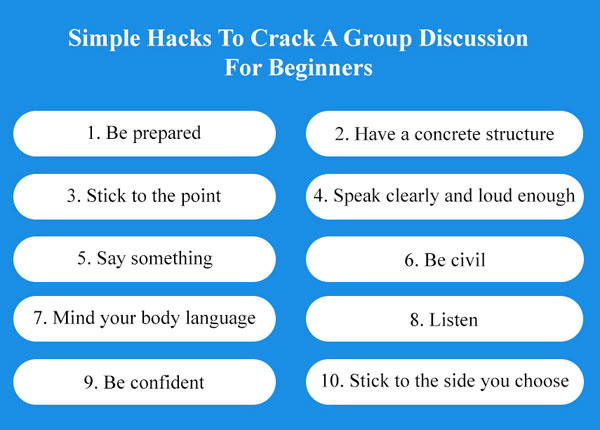
1. Be prepared
The night before the GD, ensure that you fill your bag or briefcase with a notebook, pen, water bottle, handkerchief and other items that you will need in the GD. Have the formal or semi-formal outfits that you will be wearing neatly pressed and laid out or hung.
2. Have a concrete structure
Once the topic is announced, take the preparation time to create a structure of what you will talk about. You can use diagrams or listicles to write down your talking points.
3. Stick to the point
Once you have created the structure, ensure that you speak point to point so that your speech does not get jumbled to the point that they are far off the point you started with. This will show the panellists that you have strong communication skills and a good train of thought.
4. Speak clearly and loud enough
When you speak, ensure that your voice is audible from every corner of the room and that you speak clearly. You do not have to shout, only loud enough to be heard.
5. Say something
Even if you are not well versed on the topic, you cannot just sit and nod along. While others speak, take notes and learn as much as you can, enough to weigh in your thoughts, ideas or opinions.
6. Be civil
There are bound to be disagreements in a room filled with strangers with different beliefs and thoughts. Even if you do not agree with what the others are sharing, wait for them to finish and share your views. And when you object to others’ views, do so politely and professionally. Keep your friendly face on at all times.
7. Mind your body language
Sit straight enough to be comfortable and not too stiff. Make eye contact with the other participants. Do not fidget or talk too animatedly. A nod to let the participants know that you are hearing them. This will show that you are participating and that you are present. Do not play with your hair or any other objects such as pens or pencils.
8. Listen
While others are speaking, listen carefully and take note because you could be the person that the moderator asks to summarise the GD. You must be prepared for that.
9. Be confident
When you speak while sticking to the points in your structure, be confident. Even if you make a mistake, do not lose your confidence. If you are nervous, give yourself a pep talk to motivate yourself before the GD starts.
10. Stick to the side you choose
Some participants end up contradicting their own points and stands. You must avoid this at all costs, whether for or against, and stand firm on your chosen side. The moderator or panellists will notice it and take you as a person who doesn’t believe in himself and his beliefs and changes his mind easily.
Trending Group Discussion (GD) Topics For 2022
- Does India need a new civil code?
- Impact of COVID-19 on Global Economy
- Impact of COVID-19 on the Indian Economy
- Pros, Cons, & challenges of E-learning
- Women empowerment & quality of life
- Pros & co0ns of Farm Bills
- Is the beef ban logical?
- Impact of social media influencers on youth
- Pros and cons of working from home
- Globalization: An opportunity or a threat?
GD: Do’s And Don’ts
Here are some dos and don’ts that you must keep in mind while participating in a group discussion
Speak first
You should try to grab the chance to speak first in a group discussion. If you see no one is initiating the conversation, you do it and get a plus point. However, you should understand the topic to make this turn favourable for you. Even if you do not initiate the conversation, ensure you present your point confidently.
Wear Formals
Dressing sense speaks a lot about a person, especially when participating in a formal group discussion. You should not go to a group discussion wearing casual clothes like jeans, t-shirts, shorts, or crop tops. Dress formally as it will only boost your confidence level and give you a plus point to create a great impression.
Maintain Eye Contact With Everyone
Calm yourself down, relax, and maintain eye contact with everyone participating in the discussion. It will show your involvement in the group discussion.
Do Not Interrupt Others
You should always give a chance to others and let them speak. Try not to cut them in the middle when discussing something. It will not leave a good impression on the panel. Hence, you should always wait for your turn to speak and talk about your arguments.
Be Confident
Always talk politely, use the most simple language to represent your views, and stay confident. However, do not behave as dominating when you do not agree with what others are saying.
Be Realistic
Many people get carried away and disrespect everyone by speaking nonsense. You should ignore that and not move with the flow to attain extra time to highlight yourself. It is not going to help you if your points are not valid.
Consider GD Weightage
In many colleges and universities, Group discussion carries maximum weightage. However, it also depends on institutions, so it is difficult to mention how much you need to score in it.
Read More: Self Management Skills: Definition, Importance, Examples
10 Roles Participants Play During Group Discussion
In every group discussion, there are different roles that each participant play. Sometimes someone has to step up and act like the leader, while others play the part of the Analyst or Energy Spreader, among others. Let’s take a closer look at the top 10 roles that participants play in a group discussion.
The Leader/Facilitator
The leader is usually (not always) the one who starts the discussion. He ensures that the discussion runs smoothly by keeping track of the GD.
The Initiator
He is the person who speaks up first and starts the discussion after the preparation time is over. He is the one who sets the direction of where the discussion goes.
The Referee
The Referee ensures that everyone participates in the discussion and tries to keep everyone in line when the discussion gets too severe or heated up.
The Information Guy
He is the one in the group who knows the topic best. He shares what he knows, giving examples with facts and figures and collecting information from others.
The Support
He agrees with others when they share their opinions and ideas, but he doesn’t contribute to the discussion. Sometimes, he just nods his head and barely speaks at all.
The Mood Maker
He is a person who encourages others with his positive and fun nature.
The Opinion Collector
He is the person who asks everyone in the group to share their opinions and thoughts.
The Fault Finder
He objects to and criticises every idea and opinion others share. He thinks that he knows best and that everyone should accept his proposals or opinions.
The Time-Keeper
He keeps watching on the flow of the discussion. He constantly checks his watch to see how much time has passed and how much is left or if someone takes too much time to speak.
The Summarizer
He is the person who closes the discussion with a summary of all the essential points mentioned throughout the GD.
Read More: “Why Should We Hire You?”- 10 Best Interview Answers for 2022
Rejection In Group Discussion
There can be a number of reasons why candidates get rejected in GD. However, rejection is not the end of the road. The path to success is not an easy one but with hard work and determination, you can reach the top.
So, if you are wondering why you got rejected, take a look at some of the likely reasons below so that you can learn from them and improve yourself.
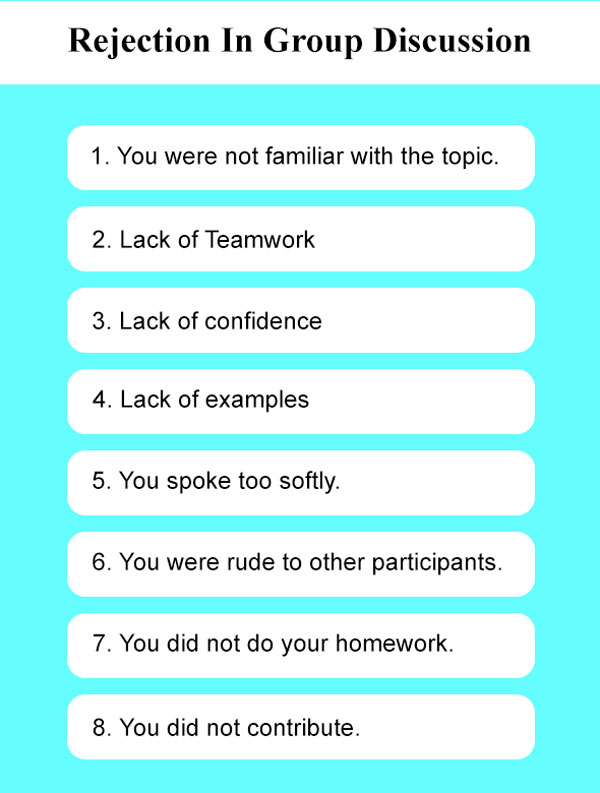
1. Group Discussion: You were not familiar with the topic.
Not everyone knows everything about everything. So, if the topic you were given was something you are not well versed in, it is only logical that you did not give the right or best answer or ideas. In this case, all you can do is read more and expand your GK.
It’s also possible that what you said lacked organization, system and order. If this is the case, after the topic is announced, take the preparation time to create a structure of what you will talk about. You can use diagrams or listicles to write down your talking points.
2. Group Discussion: Lack of Teamwork
It is possible that the moderators witnessed you not being a team player and rejected you. It could be because you were impolite or acted too selfishly toward other participants. In the world of work, teamwork is important to succeed, and recruiters are looking for candidates with good team spirit. If this is the case, you need to work and coordinate well with others.
3. Group Discussion: Lack of confidence
Even if you give the right answers but lack confidence, it can be unconvincing. If this is the case, you need to do something to increase your confidence level. You could join public speaking classes. This way, in your next GD, you will be able to speak up and convince and persuade others with your answers.
4. Group Discussion: Lack of examples
The best way to win a debate or discussion is to provide your answers with examples like facts and figures, or quotes. Even if you are not familiar with the topic, you could support your thoughts and ideas with quotes.
For example, if the topic was, “Is Social Media a boon or a bane?”, and you did not have any facts or numbers, then you could use famous quotes like, “Privacy is dead, and social media hold the smoking gun.” – Pete Cashmore, Mashable CEO
5. Group Discussion: You spoke too softly
As we have mentioned earlier, if your voice is not heard, you have not contributed to the discussion. If you were not audible throughout the GD, it could be the reason you got rejected. If this is the case, next time, ensure that your voice is audible from every corner of the room and that you speak clearly. You do not have to shout, only loud enough to be heard.
6. Group Discussion: You were rude to other participants
You could have been arrogant without knowing it, and the panellists saw that as you being rude. This could also be a reason why you got rejected. It could also be because, during the debate, you got offended and talked too harshly to others. Think back and reflect on how you acted. You need to try to fix your attitude or behavioural problem if this is the case.
7. Group Discussion: You did not do your homework
Maybe you neglected to research the organization, institute or job role you are applying for. If this is the case, we advise you to do thorough research before appearing for the interview. You can go through their website and social media accounts.
8. Group Discussion: You did not contribute
The reason that you got rejected could be that you did not speak during the GD. You could have nodded along or even been inattentive. The panellists must have seen that you weren’t listening or paying attention at all. And who would want to pass someone who cares very little about their organization or them? If this is the case, you need to work on your listening and communication skills.
Although group discussion sounds and seems scary, it is the perfect opportunity to work on your soft skills such as listening, communication, interpersonal, leadership, teamwork, and problem-solving skills.
Now that you’ve got the tools to ace your Group Discussion, we will leave you here with our best wishes.
Search Articles
Categories
- 54
- 19
- 6
- 161







